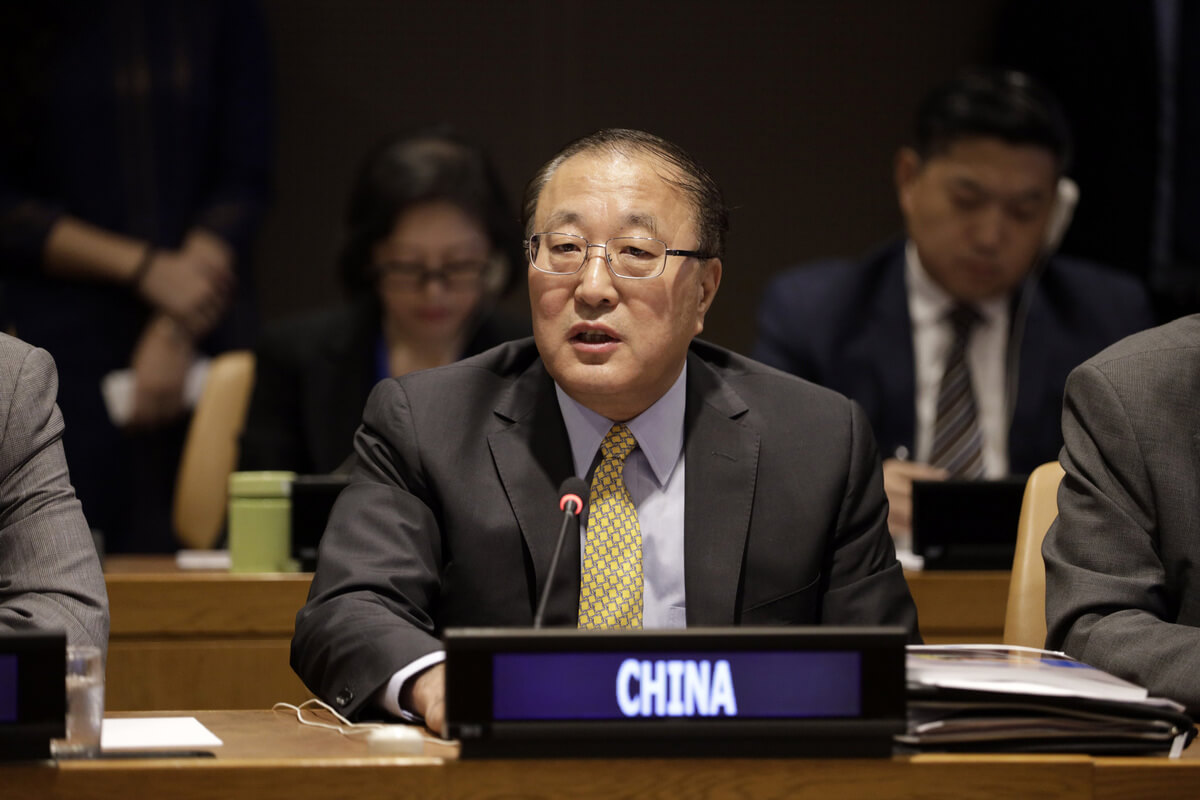China on Monday became the 107th country to join the United Nations (UN) Arms Trade Treaty (ATT), which regulates the international trade in conventional arms—from small arms to battle tanks, combat aircraft, and warships—and seeks to keep such weapons out of the wrong hands.
Beijing’s top legislative body voted to adopt the decision to become a party to the agreement last month, emphasizing China’s commitment to multilateralism and support for efforts to enhance global peace and stability. After depositing the instrument of accession to the ATT to UN Secretary-General Antonio Guterres on Monday, Chinese UN envoy Zhang Jun reasserted China’s “high sense of responsibility” in strictly regulating the export of military items, and its “resolve and sincerity” in contributing to global security governance and international arms control processes.
The ATT was adopted by the UN General Assembly (UNGA) on April 2, 2013, and was enacted on December 24, 2014. The Obama administration signed the treaty in 2013; however, the move was met with severe resistance from US National Rifle Association (NRA). The NRA argued that the inclusion of civilian firearms in the treaty could “infringe on gun rights as understood in the United States and could force Americans onto an international registry”, and made it known that the administration would face a fight if it brought the treaty to the US Senate for ratification. Ultimately, the agreement was never ratified.
Also read: COVID-19 and Gun Control in the United States
Donald Trump on the other hand, in April 2019, announced his plans to “take our signature back” from the ATT, justifying the decision as a necessary measure to defend “American sovereignty”. Three months later, in July, the US sent a formal notice of withdrawal to the UN. Trump’s allegiance to the gun lobby is hardly surprising, given that gun owners form an important part of his far-right voter base. Estimates suggest that the NRA spent nearly $30.3 million in support of Trump’s 2016 presidential campaign.
The reversal was also in line with Trump’s overhaul of landmark policies instituted by his predecessor. Looking at just those relating to arms control, the Trump administration has already withdrawn from the Joint Comprehensive Plan of Action (JCPOA), the Intermediate-Range Nuclear Forces Treaty (INF), and has expressed its desire to pull out of the Open Skies Treaty.
Amid escalating tensions between Washington and Beijing, Zhang on Monday criticized the US for “walking away from international commitments” and for “launching acts for unilateralism and bullying”. As China continues to face mounting international pressure over its handling of the coronavirus pandemic, human rights, and Hong Kong, Zhang attempted to portray China as a rational global leader that is committed to engaging in joint efforts to tackle pressing global challenges. He added: “major powers need to set an example by contributing to safeguarding the international order, the rule of law, the role of the U.N. and multilateralism.”
The US Mission to the UN (USUN) has not yet responded to Zhang’s remarks.
Image Source: China Daily

